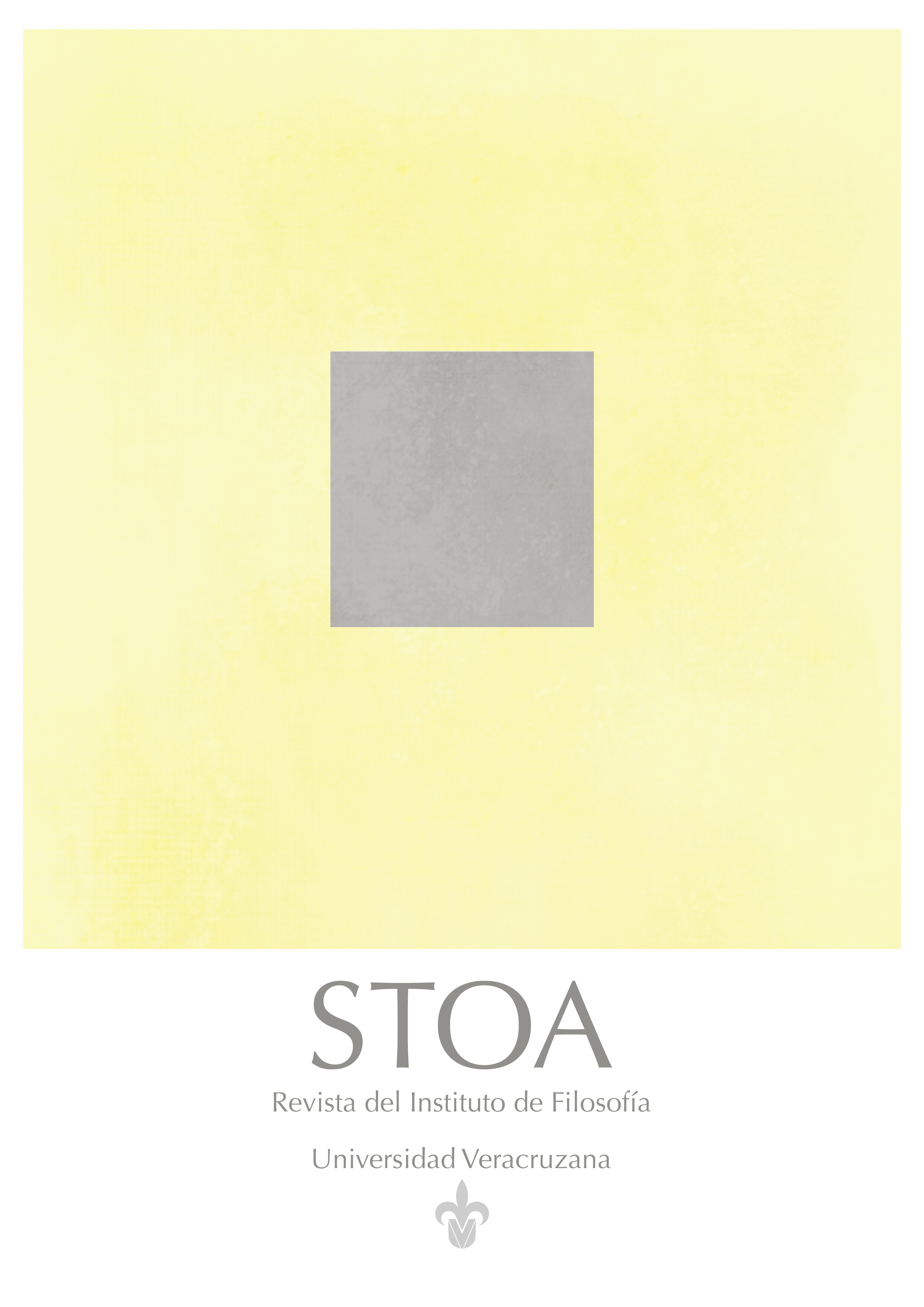Abstract
No fue sino hasta la década de 1920 que el mundo de habla alemana comenzó a darse cuenta de que la antropología filosófica se había convertido en su propio campo temático y nueva disciplina. Autores como Scheler, Plessner, Pfänder, Verweyen y Gehlen han contribuido decisivamente a esta toma de conciencia. Especialmente, el texto de Max Scheler El puesto del hombre en el cosmos de 1928 se considera como el documento fundador de la antropología filosófica contemporánea.
STOA is a biannual publication edited by the Institute of Philosophy of the Universidad Veracruzana, Tuxpan, No. 29, Frac. Veracruz, C.P. 91020, Xalapa, Ver., Tel. 8154285, http://www.uv.mx/filosofia. Responsible editor: Jesús Turiso Sebastián. Exclusive Use Rights Reservation No. 04-2008-121012511200-203, granted by the Copyright Reservation Directorate of the National Institute of Copyright of the Secretariat of Public Education, ISSN: 2007-1868. Responsible for the last modification of this issue: Jesús Turiso Sebastián, Tuxpan, No. 29, Frac. Veracruz, C.P. 91020, date of last modification August 5, 2011. Distribution and digital support by the Academic Software Development Department of the Universidad Veracruzana.
The opinions expressed by the authors do not necessarily reflect the position of the editor of the publication. Reproduction by any means of the texts published in this journal may be done as long as the source is cited, including the name of the author, the name and number of the journal, and its electronic address. For more information write to revistastoa@uv.mx.
Revista Stoa is a completely free publication, with no cost for processing or receiving articles and free access.
This work is under a Creative Commons Attribution-NonCommercial-ShareAlike 4.0 International license.

